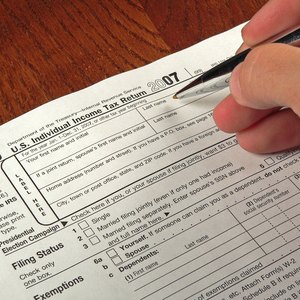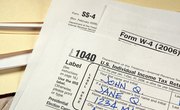
By the end of January, your employer should send you a W-2 form outlining your earnings and tax withholdings for the year. You use this form to file your taxes. Often, you'll have the W-2 mailed to your address on file with the company, but you may also receive it at work or be able to access your W-2 online.
Tips
If your W-2 doesn't arrive by early February, you can contact your employer. If it doesn't arrive by the end of February, you can contact the Internal Revenue Service and tell them your employer hasn't met the W-2 deadline, and the IRS will try to help you get the form.
W-2 Deadline and Mailing Issues
Since employers often send you the W-2 soon after the New Year, it's a good idea to make sure any of your current or former employers for the year have your current contact information before year's end. You generally include your W-2 form with your tax return if you file on paper or use the information from the form if you file online. The employer also files a copy of your W-2 with the IRS.
Employers are generally required to send or hand deliver your W-2 form by the end of January. In some cases, they may make it available online such as through an online human resources portal site.
If you don't receive your W-2 on time, inquire with your employer. Someone at work may be able to print you a new form on the spot or have another one mailed to you. If your current or former employer doesn't send you a W-2 by the end of February and you have to call the IRS at 800-829-1040 for help be sure to have your contact information and your employer's ready when you make the call.
When you do get your W-2, check it against your own records of how much you were paid and how much you saw withheld in taxes. If your W-2 is wrong, you can also ask your employer to fix it and contact the IRS if the employer fails to do so by the end of January.
If You Don't Get a Valid W-2
If your employer fails to send you a correct Form W-2 before the tax filing deadline, you still must file your taxes. Use IRS Form 4852 and estimate your earnings for the year as best you can. Use your pay stubs, bank records or whatever other records you have to make your filing as accurate as possible. The IRS advises retaining any Form 4852 you file until you begin receiving Social Security benefits.
If you later receive a W-2 or other documentation showing that the information you filed on Form 4852 was wrong, you must file an amended tax return using IRS Form 1040X.
2018 Tax Law Changes
The rules around Form W-2 aren't changing in 2018, but tax withholding rates are different in 2018 from 2017, so don't be surprised if the withholding on your W-2 is different in 2018 than in previous years even if your salary is roughly the same.
Filing for 2017
Even if you're filing an amended return because you didn't receive a timely W-2 for 2017 or an earlier year, you should still use the 2017 or earlier year's tax rates and rules, not subsequent ones, for years gone by.
References
- ADP: Form W-2 and Form 1099 Guide for Employees
- IRS:Topic Number 752 - Filing Forms W-2 and W-3
- IRS: Topic Number 154 - Form W-2 and Form 1099-R (What to Do if Incorrect or Not Received)
- IRS: About Form W-2
- IRS: W-2 - Additional, Incorrect, Lost, Non-Receipt, Omitted
- IRS: Telephone Assistance
- Internal Revenue Service. "About Form W-2, Wage and Tax Statement." Accessed Nov. 2, 2020.
- Social Security Administration. "Deadline Dates To File W-2s." Accessed Nov. 2, 2020.
- Internal Revenue Service. "2020 Form W-2." Accessed Nov. 2, 2020.
- Social Security Administration. “Social Security Wage Base Rises to $142,800 for 2021.” Accessed Nov. 2, 2020.
- Internal Revenue Service. "Employee Reimbursements, Form W-2, Wage Inquiries." Accessed Nov. 2, 2020.
Tips
- The IRS charges a monetary penalty to employers who file incorrect and untimely W-2s without being able to provide just cause. The latter includes proving that the failure was out of the employer's control and that the employer took responsible actions to prevent it.
Writer Bio
Steven Melendez is an independent journalist with a background in technology and business. He has written for a variety of business publications including Fast Company, the Wall Street Journal, Innovation Leader and Ad Age. He was awarded the Knight Foundation scholarship to Northwestern University's Medill School of Journalism.
